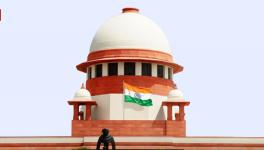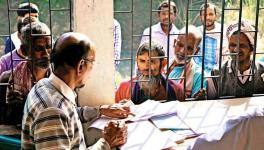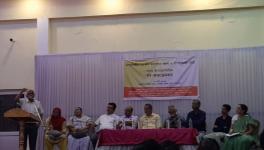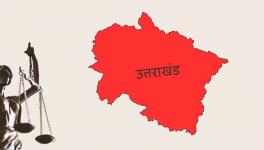Brace Yourself, Govt Plans to Peek into Every Detail of Your Life
New Delhi: The Bharatiya Janata Party-led Central Government with Prime Minister Narendra Modi at its helm is close to creating a 360 degree database which will be able to zero-in on the minutest details of Indian citizens using the already existing Aadhaar as its base, an investigation by HuffPost India has revealed.
The report mentions that if the government’s plans reach fruition, the proposed system, titled National Social Registry (NSR), will be able to track a citizen’s movement, job changes, property deals and births, deaths and marriages within the family.
It adds that given the nature of modern databases, that they are inter operable, means that the proposed database would have unforeseen capabilities. “The interoperability of modern database systems means there is no technical limit to the extent of data that can be collected and indexed by this master database of databases,” the report says.
The investigation is based on RTIs filed by activist Srinivas Kodali and HuffPost’s Kumar Sambhav Srivastava. The duo has managed to source minutes of meetings, file notations and correspondence between different government departments.
Work on proposed National Social Registry (NSR) has reportedly been going on for five years and had been reported by The Economic Times in 2017 as a means to update the already existing Socio-Economic Caste Census (SECC) from 2011. It was pitched as a move to ensure that social welfare benefits reach those in need with the Ministry of Rural Development behind the move.
However, RTIs by Kodali and the website show that the NSR will either be a single database seeded by Aadhaar or multiple linked databases which use the 12-digit number and biometric ID to “integrate religion, caste, income, property, education, marital status, employment, disability and family-tree data of every single citizen.”
The report clarifies that the NSR will not just have data on families below poverty line and dependent on government aid, but every citizen. It adds that unlike the Census, which ensures confidentiality of the data, the SECC will not be confidential.
Documents accessed by HuffPost India mention that an expert committee has been put in place to implement the NSR by 2021 and that it’s in the final stages of a pilot project which will look at the best way to roll it out.
The committee has also reportedly looked at ways to skirt around the 2018 judgment by the Supreme Court which recognised privacy as a fundamental right. Minutes of a meeting by the Unique Identification Authority of India (UIDAI) in October 2019 apparently show that safeguards part of the Aadhaar Act are under consideration to be removed.
The body has reportedly suggested a framework to ensure that Aadhaar data can be easily accessed across government departments and states and that the World Bank also agreed to lend $2 million as a grant for the scheme.
The entire exercise is said to have begun on October 13, 2015, when the Ministry of Rural Development proposed the creation of a registry to the Parliament Standing Committee on Rural Development to enable better use of SECC data. It is important to note that the Centre has not made the highly sensitive caste data public, only releasing socio-economic data.
“The MoRD needs to opt for the largest set of database (all the households in the country) if the country has to deal with poverty in a non-asymmetric manner,” former Economic Advisor of the Ministry of Rural Development, Manoranjan Kumar, noted in November 2015.
The government seeks to enable a dynamic database which could keep track of all of its citizens’ movement and establish when and if they might need its aid.
The aforementioned committee has reportedly met four times between June 2017 and October 2019.
In conclusion, the HuffPost India report says:
“This Social Registry Information System strengthened upon SECC data, would go a long way to establish a much needed continuous, authentic, efficient, and evidence-based data management system in the country to identify beneficiaries of government welfare schemes and would be an enabler for achieving goals of NEW INDIA@2022,’ Biswajit Banerjee, the joint secretary in the ministry of rural development, wrote in the file on June 17, 2019, referring to the government’s latest buzzword to mark 75 years of Indian independence.”
Get the latest reports & analysis with people's perspective on Protests, movements & deep analytical videos, discussions of the current affairs in your Telegram app. Subscribe to NewsClick's Telegram channel & get Real-Time updates on stories, as they get published on our website.
























